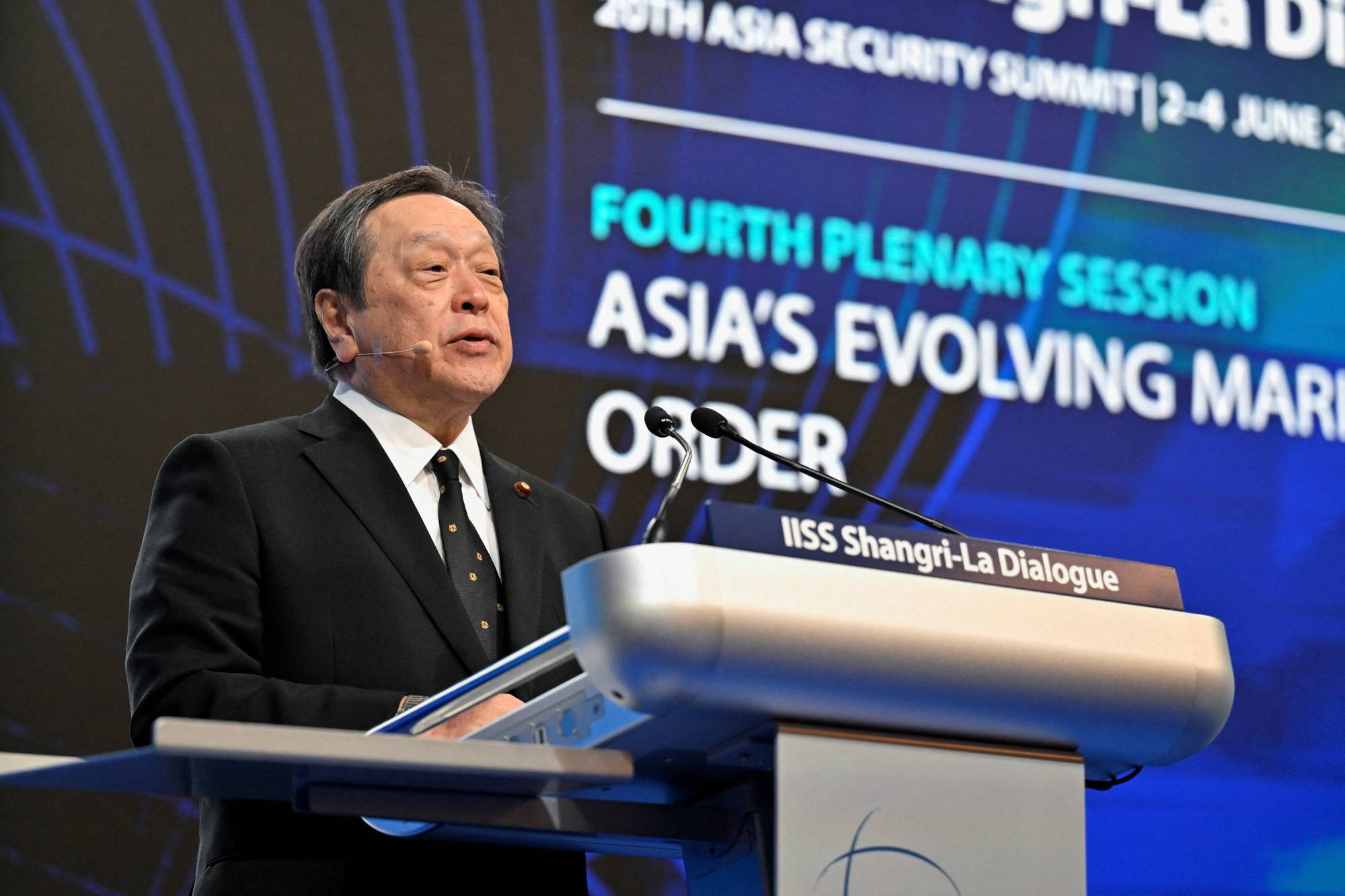As military tensions in the Indo-Pacific run high, Defense Minister Yasukazu Hamada has called on the international community to ramp up efforts to prevent conflict, with Tokyo proposing a mix of deterrence and dialogue to maintain peace and stability in the region.
“Today, the international community is at a crossroads between ‘conflict and discord’ and ‘cooperation and harmony’... as attempts to unilaterally change the status quo through force and coercion, especially in the maritime domain, are gaining momentum,” said Hamada in a speech Saturday at the Shangri-la Dialogue Asia security summit in Singapore.
“My message is simple and clear: We are not seeking confrontation or conflict,” he said. “By improving deterrence at home and in the region and by encouraging dialogue to resolve differences of interest and opinion, we seek to prevent the kind of conflicts that the region has experienced in the past and maintain a free and open international order based on the rule of law.”
















With your current subscription plan you can comment on stories. However, before writing your first comment, please create a display name in the Profile section of your subscriber account page.